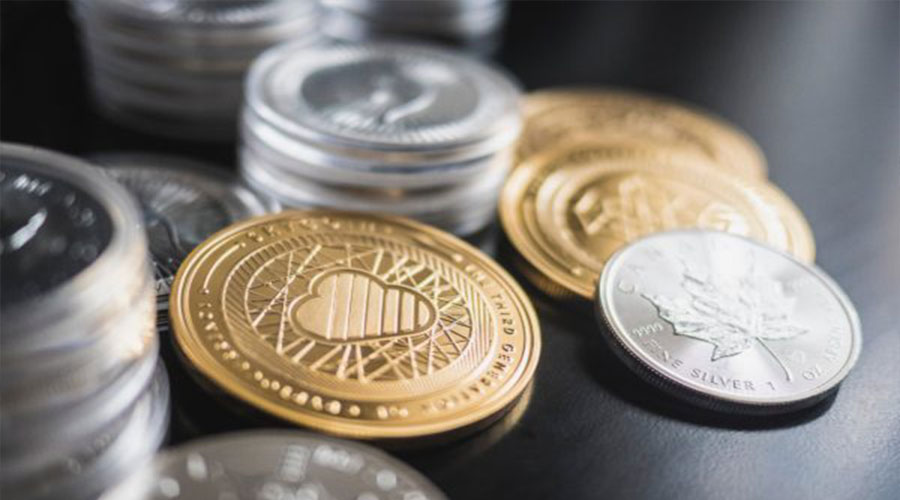The Securities & Commodities Authority (‘SCA’) of the UAE promulgated the Draft Regulations for Issuing and Offering Crypto Assets in the UAE (‘Regulation’) on 15 October 2019.
The Aim of the Regulation
The Regulation covers all aspects of the crypto-asset industry in the UAE, such as
- the issuance of tokens or crypto assets;
- the trading, offering, and exchange of tokens or crypto assets;
- safekeeping standards and practices with a strict emphasis on compliance to combat financial crimes, including anti-money laundering, anti-terrorism, and financial organisations;
- information security measures;
- technology governance standards;
- the regulation of business conduct of the crypto-asset industry; and
- the protection of investors.
Crypto Assets
The Regulation defines a crypto asset as a records within a distributed electronic network or database functioning as a medium of exchange, store of value, unit of account, representation of ownership, economic right, or right of access or utility of any kind when capable of being transferred electronically from one holder to another through the operation of computer software or an algorithm governing its use.
In simple terms, crypto assets are virtual digital assets or tokens on a distributed ledger system such as a blockchain system underlying a varied type of asset, such as stocks or debts.
Types of Crypto Assets
The Regulation categorises crypto assets into two categories.
- Security Tokens or Security Crypto Assets
Security tokens are those deemed to be financial instruments representing an interest in finance or investments such as stocks, bonds, debentures, commodities contracts, or foreign funds and are traded, exchanged, or transferred in the form of a crypto asset.
In simple terms, tokens that represent an interest in a digitised form with an underlying financial instrument are considered security tokens.
- Commodity Tokens
The Regulation defines a commodity token as any token that is not a security token. The Regulation tries to broadly encompass any and all types of crypto assets that do not squarely fall under the definition of a security token.
In my opinion, a commodity token is a tokenised form of a tradable commodity with established markets, such as gold, silver, oil, and natural gas.
Exemptions
The Regulation does not cover the following types of crypto assets or tokens:
- government-issued crypto assets or tokens (issued either by the government itself or a company wholly owned by the government);
- currencies, virtual currencies, or stored-value currencies that require prior approval from the Central Bank of the UAE;
- electronically issued securities governed by a custodian or a depository (Demat securities); and
- activities conducted in the free zones in the UAE.
Who Can Offer Tokens in the UAE?
‘Offering’ crypto assets or tokens means soliciting, causing, organising, or sponsoring the subscription of crypto assets or a subscription for the future delivery of crypto assets that is either done by a person conducting the activities in the UAE or communicated to a person in the UAE.
A company registered or incorporated in the UAE or a free zone in the UAE or an establishment registered or incorporated in the UAE and authorised or licensed by the SCA can offer crypto assets or tokens in the UAE.
As per Clause 7 of the Regulations, subject to the provisions of Federal Law No. 2 of 2015 (‘Commercial Companies Law’), the SCA has the discretion to approve other forms of entities except for joint-stock companies to offer tokens in the UAE.
Qualified Investors
Qualified investors are defined as those who can manage their own investments, such as
- a federal or local government;
- an international organisation or body;
- a person licensed by the SCA to conduct such a business;
- a person whose annual income is not less than AED one million or net worth (except his main residence) is not less than AED five million and who possess adequate knowledge to manage his investments; or
- an investor represented by an investment manager licensed by the SCA.
Recognized Crypto Assets
The Regulation gives the SCA the discretionary authority to decide, accept, or approve a certain amount of commodity and security tokens that can be offered in the UAE, which will be called recognised crypto assets.
The SCA shall update and maintain the Register of Recognized Crypto Assets from time to time.
Crypto Asset Exchange
A crypto-asset exchange (‘exchange’) is a platform that
- is used for trading, exchanging, or converting crypto assets for other crypto assets, fiat currency, securities, or commodities that applies non-discretionary trading rules;
- brings potential buyers and sellers together;
- is deemed to be a crypto exchange under the Regulation;
- does not fall outsideof exceptions of a crypto exchange.
The definition aims to cover a single exchange wherein all forms of crypto assets and securities can be exchanged or traded. This development is leaping, considering that there are very few exchanges in the world that allow trading or exchanging of all types of securities. Only with time will we get to know how well the exchanges are governed and monitored by the SCA in the UAE.
Crypto assets can be listed and exchanged on an exchange platform if it is limited to qualified investors. In the event such crypto assets are to be made available to non-qualified investors, prior approval from the SCA is required.
Crypto Fundraising Platforms
The Regulation defines a crypto fundraising platform as an electronic platform accessible online through which people can commit funds (including fiat currency and other crypto assets) to subscribe for crypto assets and that provides account details for a third-party institution (irrespective of its jurisdiction) to receive such funds and where such funds are raised in the form of donations.
This definition covers crypto fundraising platforms for not only profit-related activities but also non-profit fundraising activities. It will be interesting to witness how this Regulation is implemented to bring positive growth to the crypto fundraising industry.
Requirements for a Crypto Fundraising Platform License
The following entities are eligible to apply for a crypto fundraising platform license:
- a corporate entity that fulfils the requirements of the Custodial Regulations(The Chairman of the Authority’s Board of Directors Decision No. (29/R) Of 2009 Concerning the Regulation of Securities Custody Activities), which states that the applicant must
- be a corporate person in one of the following forms:
- A joint-stock company operating in the field of securities; or
- A commercial bank or foreign bank or a branch of a foreign bank pre-approved by the Central Bank of the UAE to practise this activity in the UAE.
- have a minimum capital of AED 50 million;
- pay a license fee of AED 500,000.00; and
- meet additional requirements outlined in the Custodial Regulations not dealt within this article.);
- be a corporate person in one of the following forms:
- a person offering crypto assets that match with the scope of crypto assets to be used in the crypto fundraising platform; or
- a person authorised to operate an exchange.
The SCA may specify additional financial resources required by operators of crypto fundraising platforms that it considers necessary to cover any risk exposed to customers and in the event that such requirements cannot adequately be covered due to a lack of available market providers.
Crypto Asset Custodians
The Regulation defines a crypto asset custodian (‘custodian’) as a corporate entity who is licensed by the SCA to carry out crypto custody services in the UAE.
The requirements for a custodian license are the same as those for a crypto fundraising platform license. If the custodian intends to deposit fiat currencies or operate wallets to deposit such currency on a cryptographic key, the custodian must seek prior approval from the SCA.
If the custodian is not licensed by the Central Bank of UAE, the custodian shall deposit the fiat currencies in a bank licensed by the Central Bank of UAE or a foreign financial institution in a jurisdiction approved by the Central Bank of UAE, as permitted by the SCA.
Furthermore, if the SCA has approved the custodian within the scope of its license to carry out custodial activities in free zones located in the UAE, the SCA may make necessary modifications to the license of the custodian to give effect for the same.
In addition to the above, the Regulation also imposes various duties and obligations on the custodian, such as the creation and maintenance of separate accounts or wallets for each customer and the duty to not hypothecate or pledge the crypto assets of the customer without the due permission of the customer.
Loyalty Schemes
Loyalty schemes are defined in the Regulation as a programme for the issuance of commodity tokens as a reward for purchases of consumer products or services that may only be exchanged or redeemed
- in return for consumer goods or services from the operator of the scheme or its related parties;
- in return for consumer goods or services from a person with whom the operator of the scheme or its related parties have entered into arrangements to redeem the tokens; or
- to credit the balance of commodity tokens of another person participating in the relevant reward scheme.
This definition is principally based on the loyalty programmes or reward programmes that we currently encounter at various cafes, retail stores, and so on as marketing or promotional tools. The same concept can be used in a cryptographic platform; hence, the Regulation has correctly envisaged the need to include it under its regulatory umbrella.
Specific-Use Credit Commodity Tokens
Currently, online gamers often encounter incentives or reward packages that they can purchase using fiat currency to enhance the game’s level of performance or gaming experience. The same concept can be used as a business model on a cryptographic platform; hence, the Regulation has included it under its wing.
Specific-use credit commodity tokens are issued or offered to
- online gamers or IT platform users to redeem to consume or enhance functionality or access additional rights or privileges but that cannot be redeemed against fiat currencies;
- employees from an employer to redeem for goods or services produced, manufactured or offered exclusively by the employer; and
- customers from a company to redeem for goods or services offered by the company.
Conclusion
The UAE stands to be a commercial bridge between the West and East and at a time when countries are racing to compete with one another to improve their economies by using blockchain and crypto assets, and the Regulation serves as a welcoming move. Numerous start-ups have already bubbled in ADGM and DIFC, and it was high time that the Federal Government of the UAE claimed its piece of the pie. However, whether it stands the test of time and copes with the ever-changing local and global market conditions is yet to be seen. It will indeed be interesting to witness how the existing regulations co-act with the Regulation to establish and improve the UAE’s crypto market.

